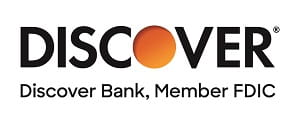Work-study programs can be an important part of many financial aid packages, designed to help students manage the cost of college while gaining valuable work experience. These programs offer students part-time employment opportunities, often on campus, allowing them to earn money to support their educational expenses.
Benefits of Work-Study Programs
Work-study programs offer a number of advantages that extend beyond financial assistance, making them an important component for students pursing their academic dreams.
Work-Study:
- Provides Financial Support While Studying: One of the main benefits is the opportunity to earn money to cover educational expenses. This lessens the reliance on student loans and eases the financial burden on students and their families, offering a more affordable path to achieving a degree.
- Offers Real-World Work Experience: Work-study positions often align with the student's class schedule, providing a flexible work environment that supports academic commitments. Students gain first-hand experience in handling real-world tasks and situations, which can greatly improve their understanding and adaptability in future careers.
- Helps Build Time Management and Professional Skills: Balancing academics and a work-study job fosters important time management skills. Students learn to prioritize tasks and manage their workload efficiently, benefiting them academically and professionally. Work-study roles also help develop essential skills such as communication, teamwork, and problem-solving.
- Opportunity to Network with Peers and Mentors: Work-study positions offer a unique way to connect with fellow students, faculty members, and industry professionals. Building a network through these interactions can lead to mentorship opportunities and career guidance, laying the groundwork for future employment prospects.
Qualifying for Work-Study
Work-study programs are generally available to both undergraduate, graduate and professional students who have been accepted or are enrolled in participating post-secondary institutions. To maintain eligibility, students typically need to maintain satisfactory academic progress as defined by their respective institutions.
- Determining Financial Need: Financial need determination takes into account various factors, such as household income, assets, and the number of household members attending college. The main tool for calculating this need is the FAFSA®. It uses a standardized method to evaluate a family's financial capacity to contribute to educational expenses, thereby determining eligibility for work-study and other financial assistance.
- Importance of the FAFSA®: Filling out the FAFSA is an important step in finding work-study opportunities as it not only assesses financial need but also provides a comprehensive overview of the types of aid a student may qualify for. Timely completion and accurate reporting on the FAFSA are essential; they set the foundation for receiving federal, state, and institutional financial aid, including work-study positions. Submitting the FAFSA early is advantageous, as it increases the chance of receiving the desired financial support, given that some funds are limited and distributed on a first-come, first-served basis.
How to Apply for Work-Study
Step 1: Complete the FAFSA®
The very first step in applying for work-study is completing the Free Application for Federal Student Aid (FAFSA). This form opens the door to various forms of financial assistance, including work-study. Be sure you fill out the FAFSA accurately and submit it promptly, as this is crucial for determining your financial need and eligibility.
Step 2: Indicate Interest in Work-Study on the FAFSA
While completing your FAFSA, you'll see a section that asks if you're interested in being considered for work-study. Make sure to indicate "yes" here, as this informs the financial aid office of your interest in receiving this type of support. Don't worry—declaring your interest doesn't commit you to a work-study position, but it keeps the option open.
Step 3: Respond to Offers from the School Financial Aid Office
Once your school's financial aid office reviews your FAFSA, they will let you know of your eligibility and any offers for financial aid, including work-study. It's important to respond to these offers promptly—especially if you're offered a work-study position. Timely acceptance demonstrates your commitment and secures your opportunity.
Step 4: Follow Up on Applications
After accepting a work-study offer, stay proactive by following up with the financial aid office or the specific department handling your position. This could involve confirming your assignment, understanding your role, and arranging your work schedule.
Making the Most of Your Work-Study Opportunity
These roles are not just jobs but steppingstones toward a successful future, blending academic life with valuable work experience. Below, you'll find strategies and tips to excel in balancing your work and academic commitments, maximize your learning, and maintain effective communication with your supervisors and financial aid office.
Strategies for Balancing Work and Academics
Balancing a work-study job with your academic responsibilities can be challenging but entirely manageable with the right strategies.
Time management is key: consider using a planner to schedule work hours, classes, study sessions, and personal time. Prioritize tasks by deadlines and importance and set realistic goals for both work and school. Maintain flexibility in your schedule to accommodate unexpected academic requirements or job shifts. While your primary focus should be academics—be sure your work hours align with your study needs, and don't overcommit.
Tips for Maximizing Learning and Experience from Work-Study Jobs
Every work-study position is an opportunity to gain valuable skills beyond earning a paycheck. Approach your job with a learning mindset: identify skills you're interested to develop and seek tasks that align with those interests.
Don't hesitate to express initiative—volunteer for projects that challenge you and speak with your supervisor about additional responsibilities. Reflect regularly on your experiences and how they relate to your career goals. This reflection can guide you in making the most productive and mutually beneficial decisions about your work-study path.
Importance of Communication with Supervisors and Financial Aid Office
Clear and consistent communication is essential to your success in a work-study role. Establish a line of communication with your supervisors to understand expectations and receive feedback, which can help you improve and advance in your role. If academic burdens arise, discuss them openly with your supervisor to explore possible adjustments to your work schedule.
Maintain contact with the financial aid office to ensure you understand the terms of your work-study award and any changes that could impact your eligibility. Effective communication will not only prevent misunderstandings but also foster a supportive work environment that benefits both your education and job performance.









